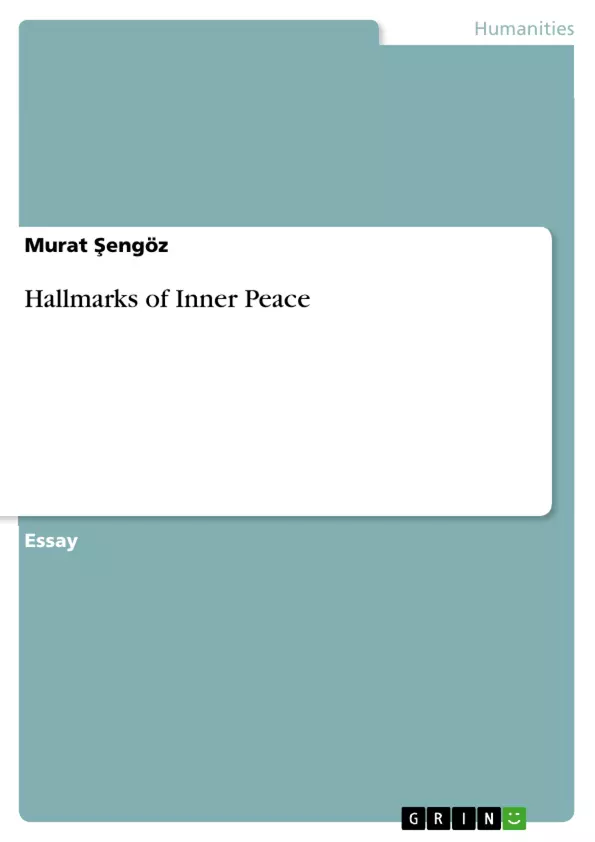To paraphrase Schopenhauer, if everyone agrees with what you say, if everyone supports your actions, if everyone appreciates your stance, however indeed your words or actions obviously do not address any real issues, do not appeal to consciences of people, then your words and actions in reality mean nothing. So, in every period of history, being able to stand up for the right is a virtue, a privilege, a superiority, and a blessing that belongs not to everyone, but only to the wise people.
In this regard, just as the secret of the beauty is in the looking of the lover, even the value of one's words is in the understanding of the listener. Because of this, the addresses of this essay are the people who are undoubtedly self-aware and conscious of their responsibilities, and aware of where they come from and where they are going. So, the target audience of this book is who, are eager to engage in good and useful engagements, constantly striving to develop empathetic, idealistic, and virtuous relationships with their surroundings, hearing their own voices and listening to the voices of others, beautiful people who are interested in the secrets of their souls.
So, the prospective reader of this book is one who is aware of some of the mysteries, facts, and truths of life, who desire and aspire to live in the full breadth of the universe without condemning their lives to narrowness, whose minds are clear, whose perceptions are open, who value the essence of wise words and who look beautiful and so that recognize the beauty.
Inhaltsverzeichnis (Table of Contents)
- Introduction
- The Path of Wisdom
- Encouraging Wisdom As An Antidote
- Being Complete
- Promoting Inner Peace
Zielsetzung und Themenschwerpunkte (Objectives and Key Themes)
This essay explores the path of wisdom and its connection to inner peace. It emphasizes the importance of self-awareness and the development of virtues that transcend materialistic desires.
- The significance of wisdom and its role in overcoming ego and finding meaning
- The journey of the soul towards liberation from material attachments and the development of divine virtues
- The relationship between self-awareness, ego control, and the pursuit of inner peace
- The importance of balance and moderation in approaching worldly desires and the role of wisdom in achieving this
- The ultimate purpose of wisdom as service to others and the role of compassion in fostering a sense of unity and well-being
Zusammenfassung der Kapitel (Chapter Summaries)
- Introduction: This chapter introduces the concept of wisdom as a virtue that allows individuals to stand up for what is right, regardless of societal pressures. It emphasizes the importance of self-awareness and the need for a conscious engagement with the world. The target audience of this essay is presented as those seeking to develop virtuous relationships and deepen their understanding of themselves and their place in the universe.
- The Path of Wisdom: This chapter delves into the essence of Sufism as a path towards self-realization and spiritual growth. It describes the journey of the soul as a process of liberation from ego-driven desires and the development of divine virtues. The chapter outlines the various stages of this journey, emphasizing the significance of overcoming ego and finding balance between self-awareness and service to others.
- Encouraging Wisdom As An Antidote: This chapter focuses on the transformative power of wisdom as an antidote to the ills of the ego. It argues that wisdom, through self-awareness and conscious choices, can lead to the control of desires and the development of virtues. The chapter explores how wisdom promotes a sense of purpose and connection with the world.
- Being Complete: This chapter explores the concept of completeness and how it relates to the path of wisdom. It emphasizes the importance of achieving a state of inner balance and harmony, where desires are balanced with spiritual values.
Schlüsselwörter (Keywords)
The core concepts explored in this essay include Sufism, wisdom, ego, self-awareness, virtue, inner peace, service to others, compassion, and balance. The author emphasizes the transformative journey of the soul towards spiritual enlightenment and the role of wisdom in navigating life's challenges.
Frequently Asked Questions
What is the path of wisdom according to the essay?
The path of wisdom is a journey of self-realization and spiritual growth, focusing on overcoming the ego and developing divine virtues.
How does the essay define inner peace?
Inner peace is achieved through self-awareness, balance, and the control of worldly desires, leading to a state of harmony within the soul.
What role does Sufism play in this work?
Sufism is presented as a spiritual framework for the soul's liberation from material attachments and the pursuit of idealistic, virtuous relationships.
Why is self-awareness crucial for wisdom?
Being self-aware allows individuals to recognize the mysteries of life and consciously choose service to others over ego-driven motives.
Who is the target audience for this essay?
The target audience consists of conscious, self-aware people who are interested in the secrets of their souls and strive for virtuous connections with their surroundings.
- Quote paper
- Dr. Murat Şengöz (Author), 2023, Hallmarks of Inner Peace, Munich, GRIN Verlag, https://www.grin.com/document/1361453



